Report: SAG-AFTRA Strike Costing Studios “About $600,000 Per Week”
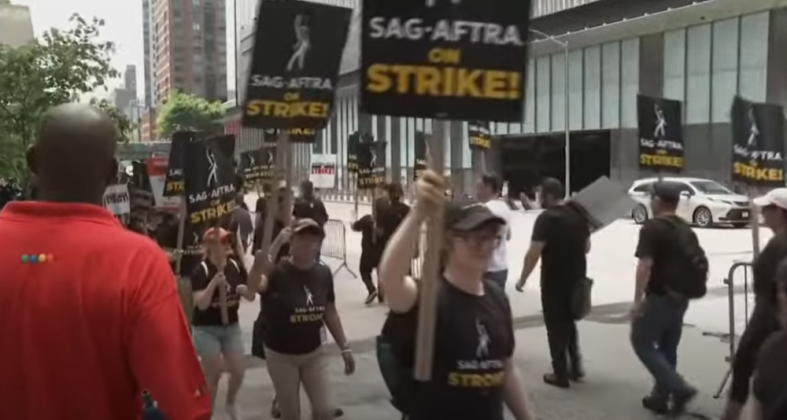
A new report claims the SAG-AFTRA strike is costing Hollywood studios “about $600,000 per week.”
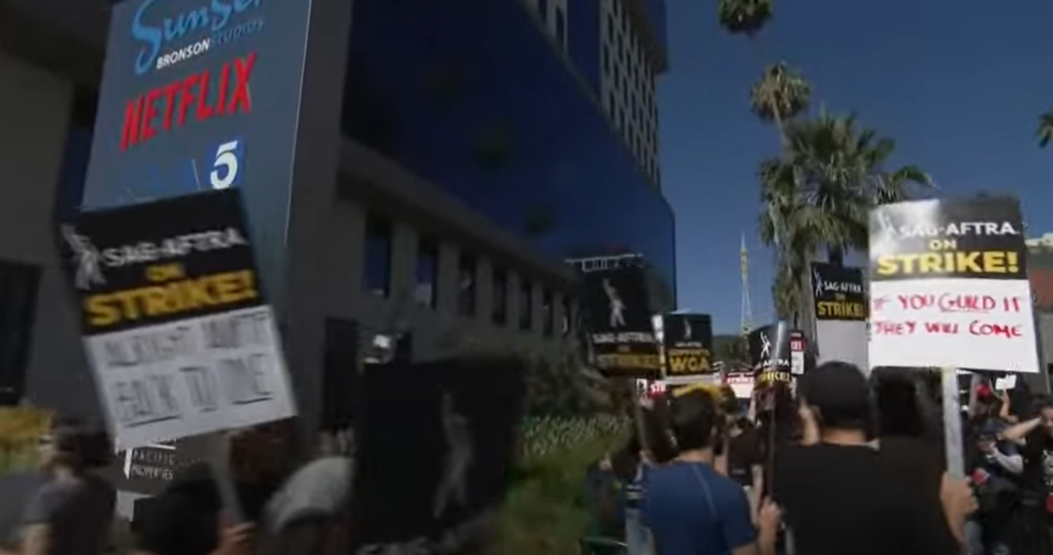
SAG-Aftra Union members on the picket line via Associated Press YouTube
This new report comes from Variety’s Brent Lang, Tatiana Siegel, and Matt Donnelly. The trio cite an anonymous media CEO and report, “The collateral damage from the work stoppage is intense and unyielding. For big-budget projects like Gladiator 2 and Deadpool 3, the cost of holding on to soundstages packed with sets and costumes runs about $600,000 per week.”
Later on in the article, it notes these costs will likely effect companies like The Walt Disney Company and Comcast more than companies who have recently launched film and TV production companies like Apple and Amazon.
The trio note, “Apple and Amazon have launched streaming services in the past decade and invested billions of dollars to produce original programming. These companies have market caps of $3 trillion and $1.3 trillion, respectively, exceeding those of Disney ($156 billion) or Comcast ($175 billion), making them better equipped to withstand a long shutdown.”
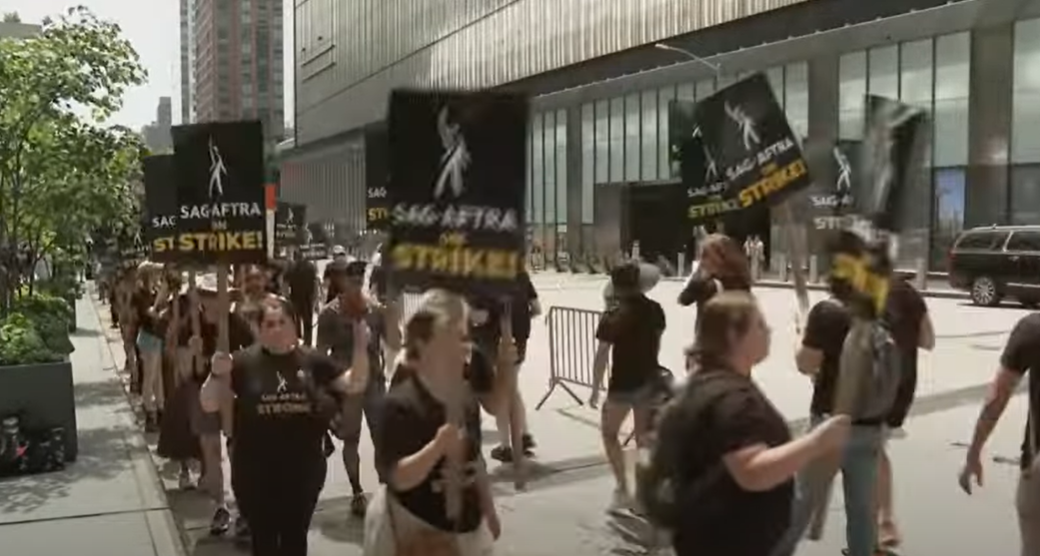
SAG-Aftra Union members on the picket line via Associated Press YouTube
RELATED: SAG-AFTRA President Fran Drescher Suggests The Walt Disney Company Lock Bob Iger “Behind Doors”
Studio heads such as Walt Disney’s Bob Iger and Max’s Casey Bloys have admitted the strike is going to cause pain for both sides.
Bloys told Variety the strikes, “will slow everything down. It will be a lot of pain for everybody, for all sides. It’s not a lot of fun to contemplate having to deal with, having to figure this out as an industry.”
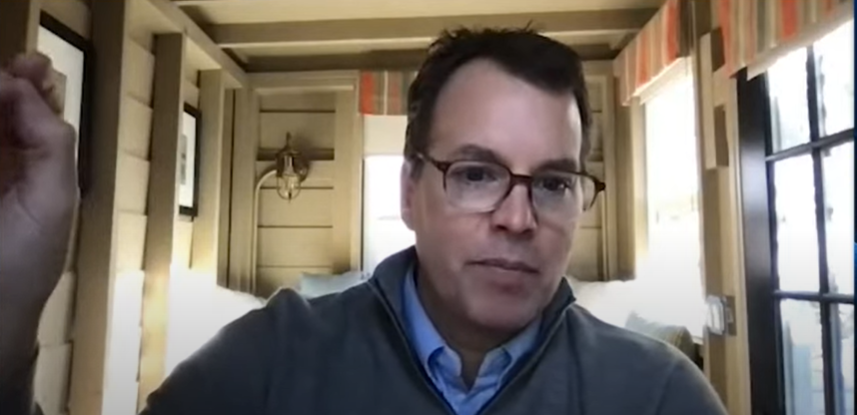
HBO CEO Casey Bloys via Parrot Analytics YouTube
Iger told CNBC a couple of days before the actors went on strike that he found it “very disturbing.” He added, “We’ve talked about disruptive forces on this business and all the challenges that we’re facing and the recovery from Covid, which is ongoing, it’s not completely back. This is the worst time in the world to add to that disruption.”
“I understand any labor organizations’ desire to work on the behalf behalf of its members to get, you know, the most compensation and to be compensated fairly based on the value that they deliver. We managed as an industry to negotiate a very good deal with the Directors Guild that reflects the value that the directors contribute to this great business. We wanted to do the same thing with the writers and we’d like to do the same thing with the actors,” he continued.
Iger concluded, “There’s a level of expectation that they have that is just not realistic and they are adding to a set of challenges that this business is already facing that is quite frankly very disruptive and dangerous.”
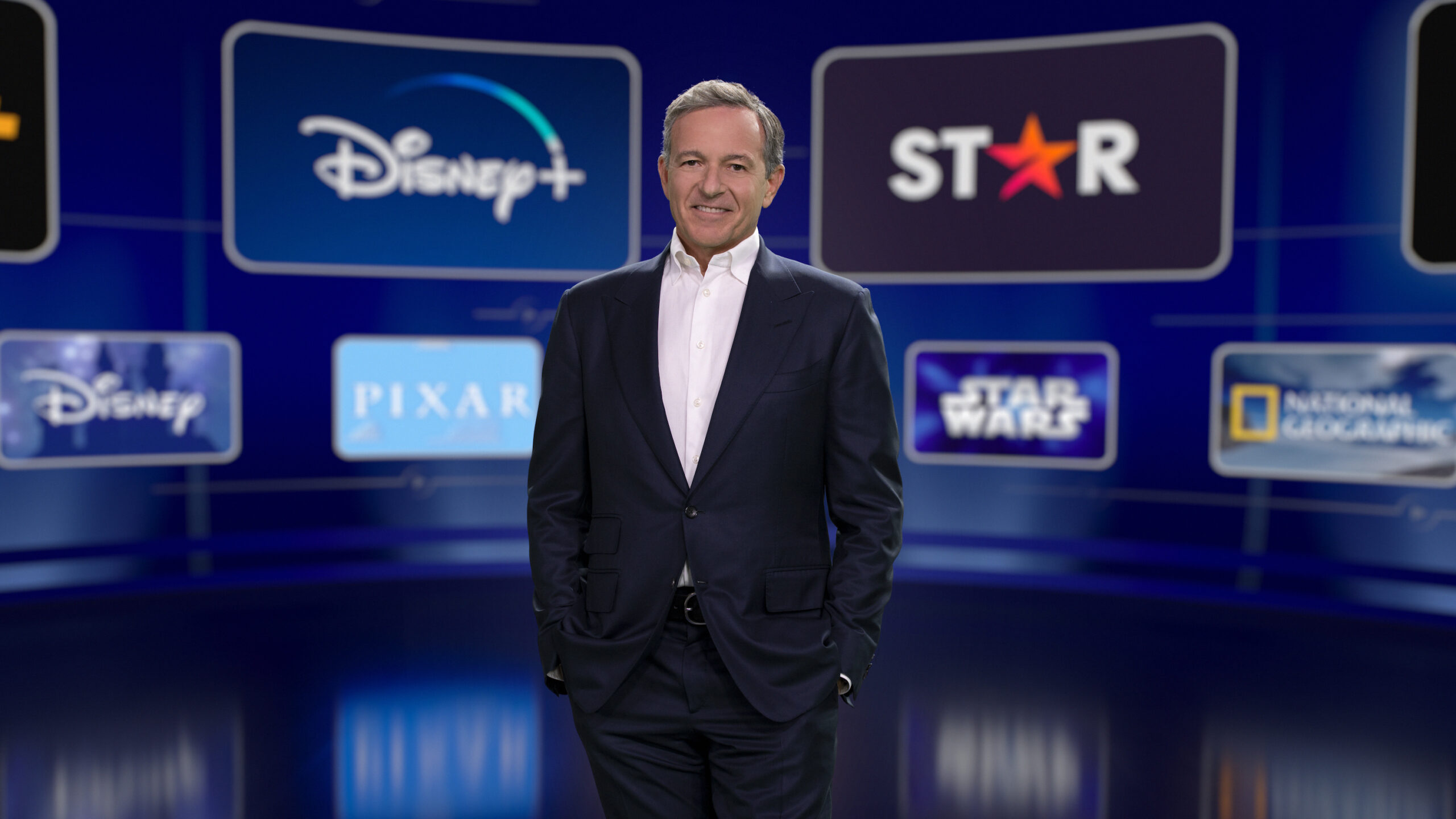
Robert A. Iger, Executive Chairman and Chairman of the Board, at The Walt Disney Company’s Investor Day 2020.
It’s not just current executives predicting pain, former Paramount Pictures and 20th Century Fox CEO Barry Diller predicts the entire industry could collapse under the weight of the strike if it goes on long enough.
Diller told CBS’ Face the Nation, “What will happen is, if in fact it doesn’t get settled to Christmas or so, then next year there’s not going to be many programs for anybody to watch. So you’re going to see subscriptions get pulled, which is going to reduce the revenue of all these movie companies, television companies. The result of which is that there will be no programs.”
“And at just the time [the] strike is settled that you want to gear back up there won’t be enough money,” he added.
He then shared a couple of his ideas that he thinks might help both sides negotiate, “The one idea I had is to say as a good faith measure, both the executives and the most paid actors should take a 25% pay cut to try and narrow, narrow the difference between those who get highly paid and those who don’t.”
He also added, “The only other thing I would do, I would call for a September 1st deadline. There’s a strike deadline. I think there should be a settlement deadline because unless it happens by September 1st, the actions- And, of course, who cares about Hollywood, who cares about it. But the truth is this is a huge business both domestically and for world export … but these conditions will produce an absolute collapse of an entire industry.”
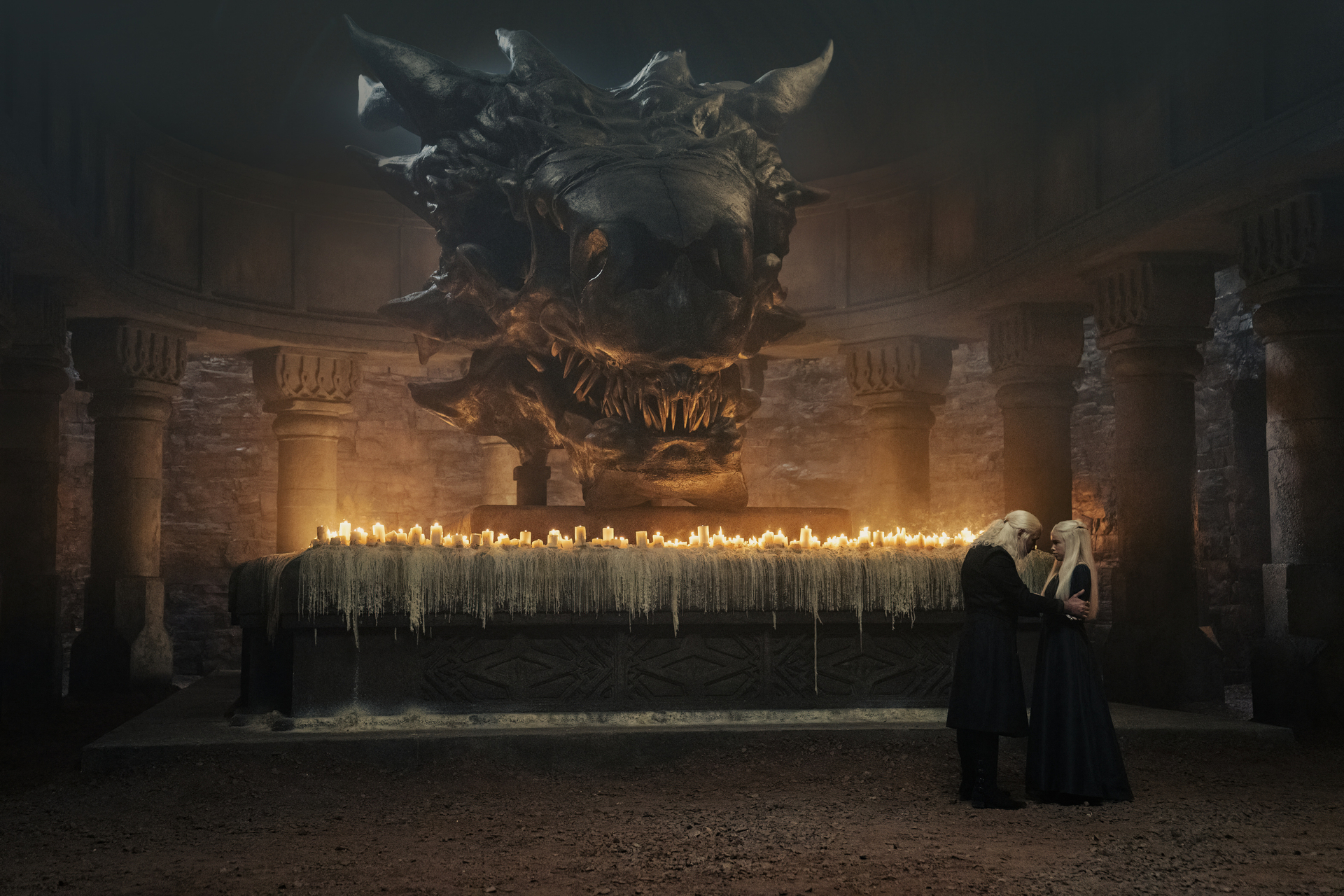
Paddy Considine as King Viserys Targaryen and Milly Alcock as Young Princess Rhaenyra Targaryen in House of the Dragon
Interestingly, Bloys made similar comments when speaking to Variety, noting for Max it gets “dicier” if the strike goes into 2024. When asked when viewers will see the effects of the strike, Bloys said, “I would say mid-2024. It’s hard to say because, it all depends on how long this goes on. I don’t think anybody really knows that.”
He continued, “A lot of people have opinions, a lot of people who’ve been through this before have a sense for how it might play out. But I don’t think anybody really knows. It’s hard to really assess what would happen.”
“At least through the end of 2023, we’re OK. And then into ’24 it starts to get dicier,” he concluded.
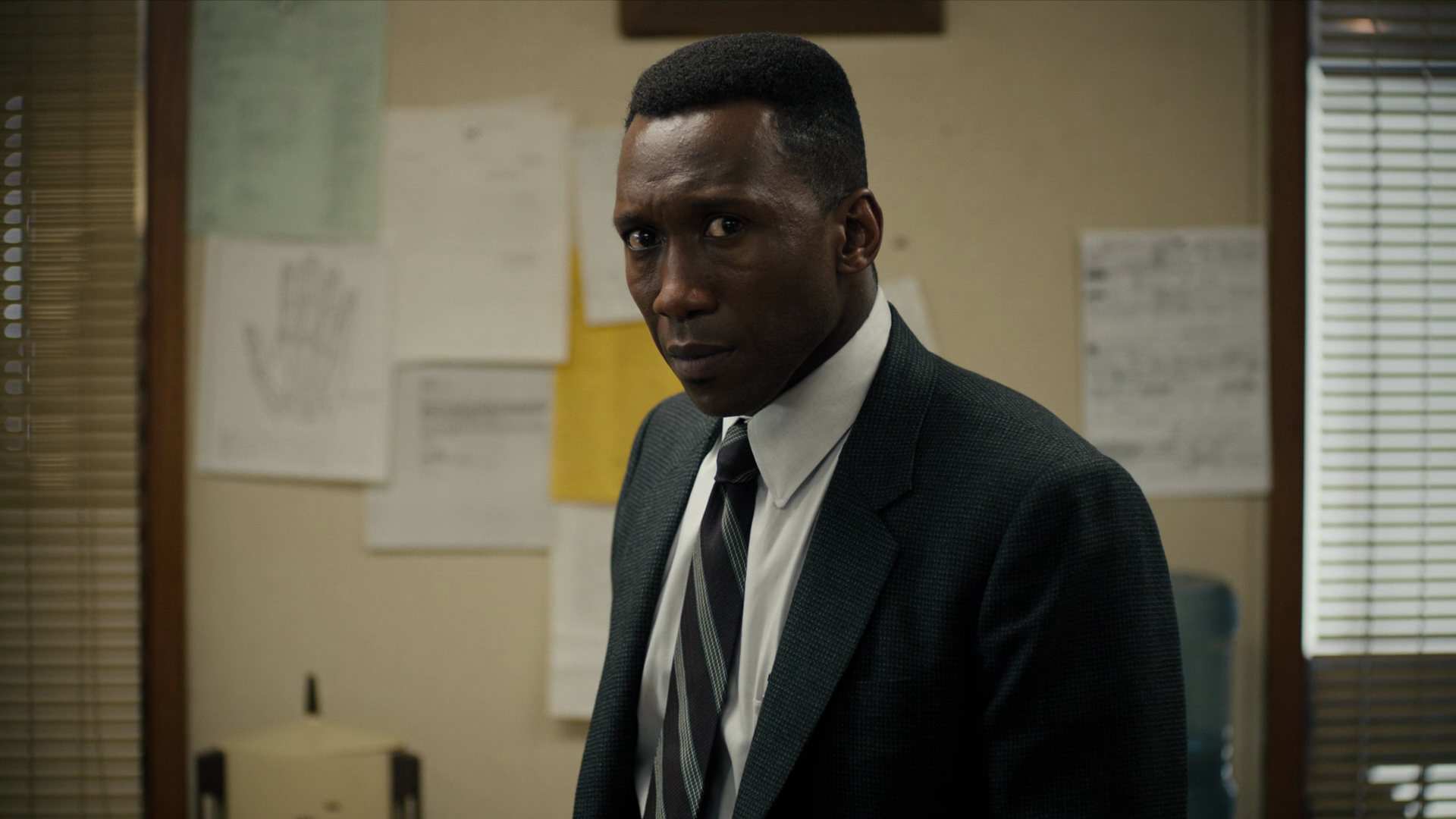
Detective Hays (Mahershala Ali) is shocked to find that he is the only one moved by Woodard’s (Michael Greyeyes) death in True Detective Season 3 Episode 5 “If You Have Ghosts” (2019), HBO
With the actors going on strike alongside the already striking writers, the tone surrounding the strikes from executives has appeared to change. Back in May Paramount Global CEO Bob Bakish did not seem to be too bothered by the writers strike saying, “Writers are an essential part of creating content that our audiences enjoy, really across platforms. And we hope we can come to a resolution that works for everyone fairly quickly. But it’s also fair to say there’s a pretty big gap today.”
He continued, “So obviously, we’ve been planning for this. We do have many levers to pull and that’ll allow us to manage through this strike, even if it’s for an extended duration. In terms of those levers, we have a lot of so to speak content in the can. So, with the exception of things like late night, consumers really won’t notice anything for a while.”
Bakish continued to outline the company’s plan, “Add to that a broad range of reality and unscripted, where we’re definitely a leader, as well as sports and that’s not affected. And so what we can do more in those areas as necessary and and again, we have a leadership position overall. Plus we have offshore production, which we’ve been moving to leverage pre-strike.”
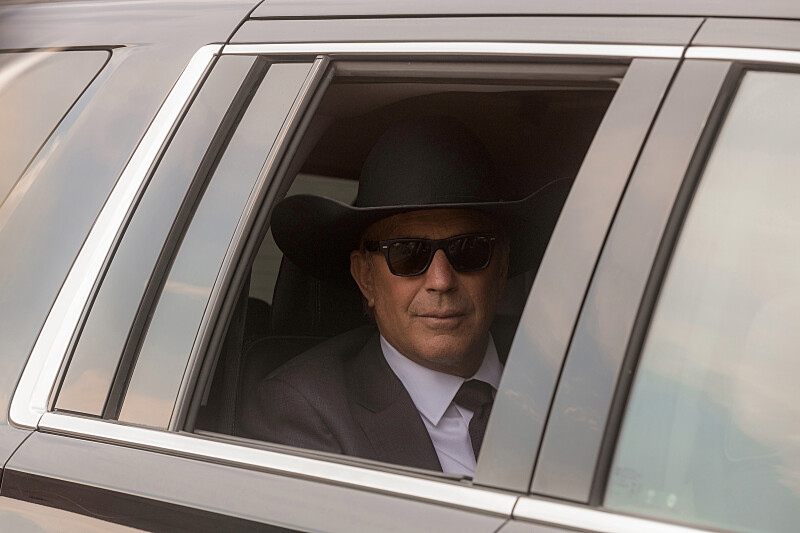
Kevin Costner as John Dutton in Yellowstone (2022), Paramount Network
However, there are some executives who see an opportunity with SAG-AFTRA striking. Amazon’s head of scripted originals in Italy Davide Nardini appeared at the Audiovisual Producers Summit in Trieste and detailed how he believes the strike could help Italian productions get larger recognition.
When asked about the impact of the strike on Italian productions, he said, “My personal opinion is new international projects will have the opportunity to circulate because the strike has imposed a stop, so this entails some sort of gaps that can be filled by international projects.”
“If this is going to last for some time, then there is some room for local projects. This my personal opinion, I’m not speaking on behalf of Amazon,” he clarified.

Alan Ritchson as Jack Reacher in Reacher
What do you make of this report that studios are losing $600,000 a week?
More About:Movies Television
